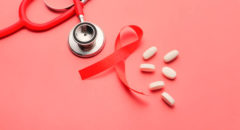
You can live a long healthy life with HIV as long as you take medication and get educated about the stigma. The Centers for Disease Control and Prevention (CDC) say that HIV is a virus that weakens the immune system and alters the way the body defends itself against infection. Lack of treatment for HIV may result in the development of AIDS.
A person may have flu-like symptoms within 2–4 weeks of infection. Some individuals, however, show no signs at all, so testing is the only way to be sure. There are about 34,963 persons with HIV in North Carolina, as reported by the state’s Department of Health and Human Services. Included are those who received their first diagnosis in another state.
The NCDHHS also reported that 129 persons were newly diagnosed with AIDS and 375 with HIV this year.
Southern HIV/AIDS Awareness Day
On August 20, 2022, people around the South commemorated Southern HIV/AIDS Awareness Day, an event started by the Southern AIDS Coalition in 2019 to raise awareness about HIV and break down stigmas associated with the infection in the region. Despite the fact that the HIV epidemic is worse in the South, this day is intended to bring people together to work on eliminating prejudice and increasing access to care.
RELATED: Remove the Stigma! Trans Advocate Speaks About the Need to Support Black Women Living With HIV
How Can Conversation Help?
The stigma associated with HIV/AIDS is the main source of suffering for people with the virus. They are compelled to live in prolonged secrecy about their status as a community until they are ready to tell the world that they are HIV positive. Due to this, several organizations and individuals promote HIV prevention strategies such as pre-exposure prophylaxis (PrEP).
Pre-exposure prophylaxis (PrEP) decreases the risk of HIV transmission via sexual activity by about 99 percent while injectable drug use decreases the risk by at least 74 percent when taken as directed, according to the CDC.
Since HIV is seldom discussed, and since many places could use some assistance in acquiring the resources they need, it is reasonable to assume that this will be news to many individuals.
The biggest asset to any community is a local hospital, but without support groups or anything similar, it remains an untouched subject. Being honest about having HIV/AIDS is going to be approximately three times as difficult as being open about anything else since once someone learns, ignorance sets in, and you can be ostracized or harshly condemned because the first thing that comes to mind is that you got it through sleeping around.
In fact, there are several ways people can contract HIV/AIDS besides sex. These include:








